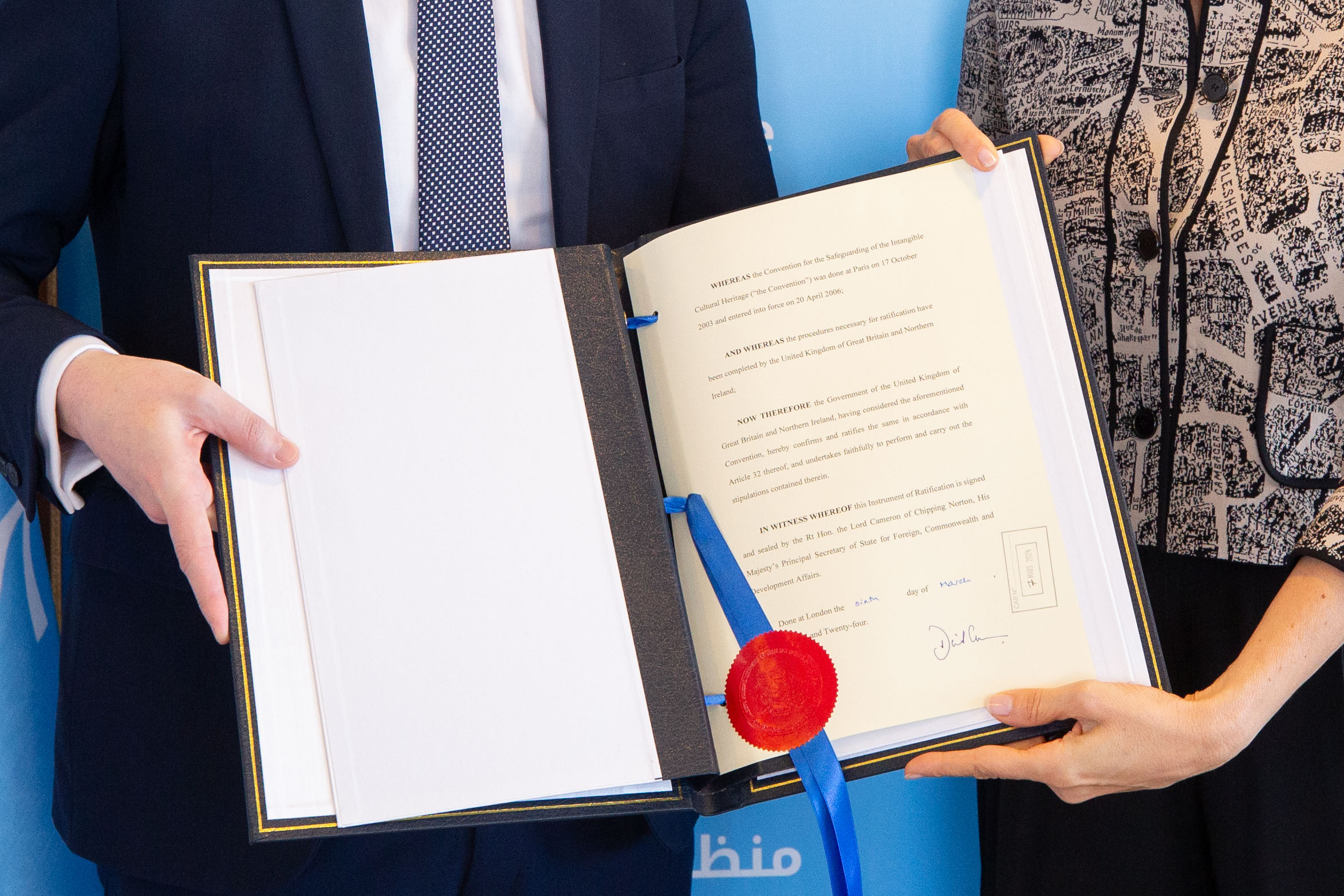UK ratifies UNESCO Convention on Intangible Cultural Heritage

The number of ratifications by Member States has accelerated with 10 other countries joining the Convention
United Kingdom has become the latest country to ratifying Convention for the Safeguarding of Intangible Cultural Heritage of the United Nations Educational, Social and Cultural Organisation (UNESCO).
In a press statement, UNESCO says that the United Kingdom became the 183rd state to join UNESCO’s Convention since it was created in 2003, for the safeguarding of the intangible cultural heritage that recognises traditional craftsmanship, oral traditions, expressions and performing arts.
UNESCO adds that the United Kingdom was dedicated to expanding its inventory of national traditions, which includes practises influenced by diaspora communities. Therefore, the UK government initiated a public consultation in January 2024 to establish a new registry. This registry allows communities nationwide to nominate their most cherished local traditions for better protection, it adds.
Over the past seven years, the number of ratifications by Member States has accelerated with 10 other countries joining the Convention, namely Angola, Kiribati, Libya, Malta, San Marino, Singapore, Solomon Islands, Somalia, Suriname and Tuvalu.
“We welcome the United Kingdom of Great Britain and Northern Ireland as the 183rd State Party to the UNESCO’s Convention for the safeguarding of the intangible cultural heritage. This marks an important step in our shared commitment to protecting and transmitting the living heritage of the communities,” says Audrey Azoulay, UNESCO Director-General.
In two decades, the convention has highlighted the importance of living heritage, brought more communities voices to the forefront, and become a reference for states in the establishment of policies and institutions, legal frameworks, and educational and economic programmes. Presently 730 elements are inscribed on the convention’s lists and register. The International Assistance of the Convention provides dedicated resources for states to implement safeguarding programmes, community-based inventorying, awareness-raising, specific knowledge on safeguarding in emergencies, and training of experts. For the past seven years, it has benefitted projects in more than 70 countries with a total amount of USD 12.7 million. More than half of this financial assistance benefited African States, says UNESCO.
However, UNESCO warns that while important progress has been made, emerging challenges remain ahead for living heritage’s viability. This includes the protection of cultural rights including those of indigenous communities; the integration of living heritage to reinforce the quality and relevance of the education system; the maximisation of the positive effects of economic activities on communities; and mainstreaming of living heritage knowledge and practises into climate action. The support of the UK and all the convention’s states parties and partners will be crucial in the coming years, it adds.










